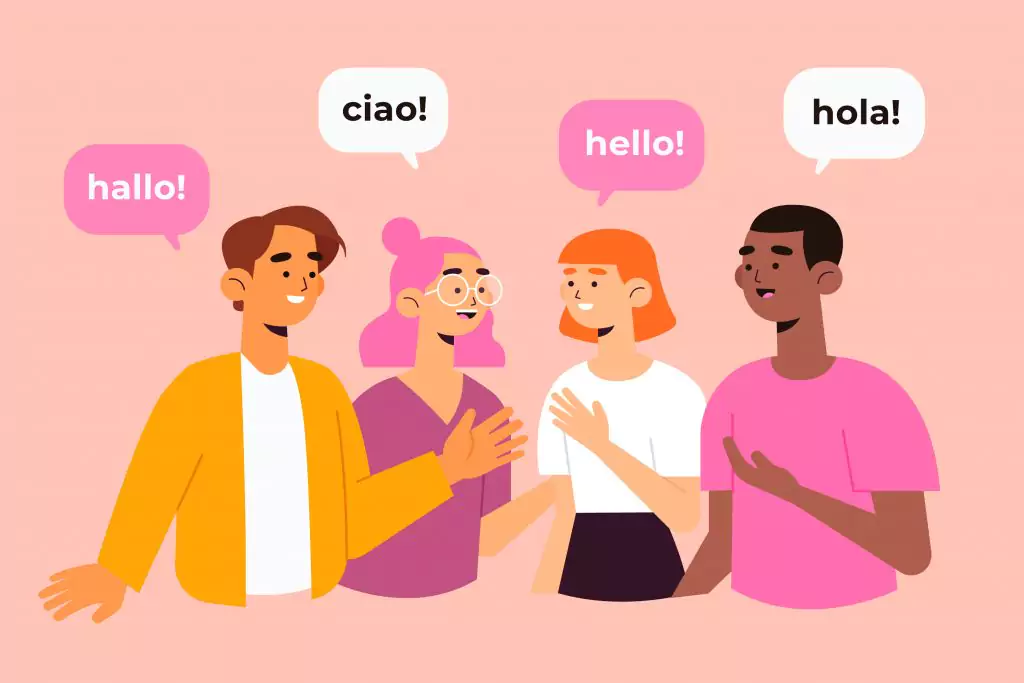
Expressions are the colorful threads that weave the fabric of language, giving us insight into cultures and ways of thinking. From humorous idioms to thought-provoking proverbs, expressions capture the essence of a people and their unique perspectives. In a exploration of linguistics, we have uncovered an array of expressions from various corners of the globe. Join us on this linguistic journey as we delve into the most captivating phrases found in languages worldwide.

✅ AI Essay Writer ✅ AI Detector ✅ Plagchecker ✅ Paraphraser
✅ Summarizer ✅ Citation Generator
Key Takeaways:
- Languages hold a treasure trove of fascinating expressions, providing windows into different cultures and worldviews.
- Idioms and proverbs often embody cultural values, humor, and wisdom, conveying profound messages in a concise manner.
- Language learners can deepen their understanding and appreciation of a foreign language by exploring and embracing its unique expressions.
Delving into Linguistic Gems
Languages are like vibrant tapestries, interwoven with expressions that reflect the beliefs, experiences, and ingenuity of their speakers. Let’s explore a few remarkable expressions that have resonated with language enthusiasts around the globe.
Coger el toro por los cuernos
“In Spanish, we say ‘coger el toro por los cuernos,’ which literally means ‘to take the bull by the horns.’ It’s a metaphor for facing challenges head-on.”
This Spanish expression encapsulates the courageous spirit required to confront difficulties directly. Just as a matador bravely confronts a charging bull, this idiom inspires individuals to tackle problems with determination and resolve. It symbolizes the importance of seizing opportunities and not shying away from life’s obstacles.
L’appel du vide
“In French, we have the phrase ‘l’appel du vide,’ meaning ‘the call of the void.’ It refers to the strange urge to jump off a high place, even though you have no intention of doing so.”
This enigmatic French expression captures a universal but seldom-discussed human curiosity. It represents that inexplicable feeling that arises when one is standing on the edge of a precipice and experiences a momentary temptation to jump, even though they have no genuine desire to do so. The phrase serves as a reminder of the complex and mysterious workings of the human mind.
Schadenfreude
“In German, we use the term ‘Schadenfreude,’ which describes the pleasure derived from witnessing the misfortune of others.”
While not unique to the German language, the term “Schadenfreude” has gained significant recognition due to its precise definition. It embodies the complex mixture of delight and satisfaction some individuals experience when observing the missteps or hardships of others. Although not the noblest of emotions, this expression highlights the intricate nuances of human psychology.
Embracing the Linguistic Kaleidoscope
The world of language learning is akin to embarking on a thrilling adventure, with each expression acting as a colorful marker along the way. By immersing oneself in the beauty and intricacy of foreign expressions, language enthusiasts can deepen their understanding of cultures, foster empathy, and connect on a more profound level with native speakers.
Moreover, grasping these linguistic gems adds depth and vibrancy to conversations, enabling language learners to express themselves in ways that transcend the mere exchange of words. Idioms and proverbs inject personality and flair into everyday speech, making interactions more engaging, relatable, and memorable.
Whether it’s a Chinese proverb, an Arabic idiom, or an Italian colloquialism, each expression paints a vivid picture of the language it belongs to, offering valuable glimpses into the heart and soul of a community. As language learners, let us embrace these linguistic kaleidoscopes, as they hold the power to unlock new horizons, broaden our perspectives, and truly illuminate the world.
So, next time you delve into the study of a foreign language, remember to seek out its most captivating expressions. You may find yourself not only learning a new phrase but also gaining a deeper appreciation for the beautiful tapestry of human communication.
Debunking Language Learning Myths
Language learning is an exhilarating journey that opens doors to new cultures and opportunities. However, it’s not uncommon for myths and misconceptions to cloud people’s perceptions of language acquisition. Let’s debunk some of these common language learning myths to shed light on the realities of mastering a new tongue:
- Myth: Language learning requires natural talent or a “language gene.” Reality: Language learning is a skill that can be developed through practice, dedication, and effective strategies. While some individuals may have a knack for languages, anyone can learn and become proficient with the right approach and consistent effort.
- Myth: It’s too late to learn a language as an adult. Reality: Research shows that adults can indeed become proficient language learners. Although the learning process may differ from that of children, adults bring valuable experience, cognitive skills, and motivation to their language learning endeavors. It’s never too late to start and make progress in learning a new language.
- Myth: Immersion is the only effective way to learn a language. Reality: While immersion can be a powerful language learning experience, it’s not the only effective method. Diverse learning approaches, such as online resources, language exchange programs, and structured courses, can also contribute significantly to language acquisition. Combining various methods and finding what works best for you is key to successful language learning.
By dispelling these myths, aspiring language learners can embark on their language learning journeys with confidence and determination. Remember, language learning is a skill that can be cultivated, and there are multiple paths to achieving fluency. Embrace the journey, stay motivated, and enjoy the rewarding experience of mastering a new language.
Related articles:
Mastering the ‘Bless You’ in German: A Guide to German Etiquette and Language Use
The World’s Most Challenging Languages
Expressing “Black” in Diverse Languages
Follow us on Reddit for more insights and updates.





Comments (0)
Welcome to A*Help comments!
We’re all about debate and discussion at A*Help.
We value the diverse opinions of users, so you may find points of view that you don’t agree with. And that’s cool. However, there are certain things we’re not OK with: attempts to manipulate our data in any way, for example, or the posting of discriminative, offensive, hateful, or disparaging material.